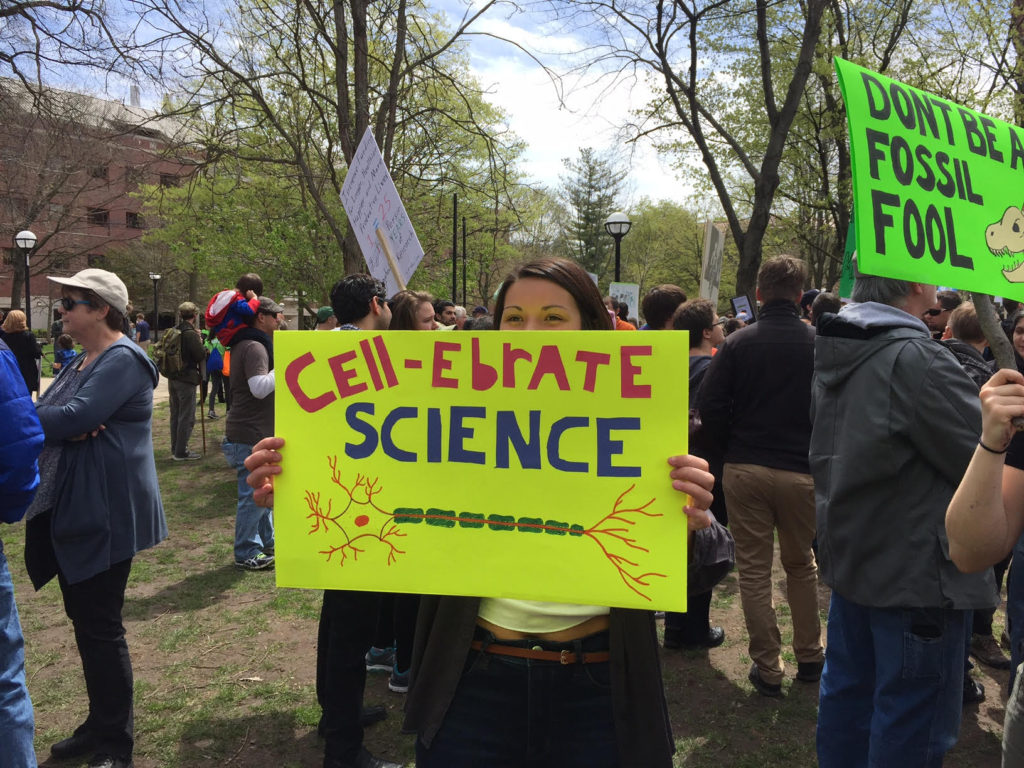
Juniors Randi Block and Lauren Barlass said they don’t consider themselves political people. But when they heard about the March for Science taking place in Ann Arbor on Saturday, they decided to check it out for themselves.
“We read the whole mission statement, and we were curious,” said Block, a biology major. “We didn’t go with signs and all that stuff; we were interested in seeing how it would play out.”
The Ann Arbor event was one of many coordinated marches across the country on Saturday, as concerned citizens gathered to celebrate science and to protest a federal administration they see as dangerous to science’s further advancement.
Upon arriving, Block and Barlass said they were encouraged by the former and disappointed by the latter.
“It was cool to see some of the tenets were bringing science and community together,” said Barlass, a biochemistry major. “There were a lot of people there who were local science teachers, things like that — just everyday people standing together for science. But there were a lot of people that I don’t know if they were there truly for the science — there were definitely a lot of signs that were just anti-Trump or even anti-Christianity.”
Visiting Lecturer of Biology Angelica Pytel, who also attended the Ann Arbor rally, said despite the negativity, the main focus of the rally was science’s positive contributions to society.
“There was some of that bashing, but you’re going to have that anywhere,” Pytel said. “Most of them were just promoting the importance of science and science literacy, just scientists coming together to support one another.”
Part of the point of the rally was to encourage scientists to get more involved in politics, Pytel said, but with an emphasis on making a positive contribution.
“We need to have more representation in senators and representatives,” Pytel said. “It’s good to have some skeptical people who aren’t so ideological, and we aren’t so ideological about our science, and that would be a refreshing thing.”
Assistant Professor of Biology Silas Johnson attended the March for Science, as well. But instead of traveling to Ann Arbor Saturday morning, Johnson drove through the night to attend the main rally on the National Mall in Washington, D.C.
“It attracted a lot more people like myself,” Johnson said. “I have colleagues around the country at various other colleges and universities who traveled out there; there were a lot of professional scientists who went there.”
Johnson agreed with Pytel that, despite some anti-Trump sentiment, the general mood of the protest was positive.
“A lot of it was related to personalizing and humanizing scientists and connecting science to the public,” Johnson said. “Making science accessible to the public, which I think is kind of an important goal. A lot of times people think of scientists as these elitist, snobby types who hang out in labs and wear coats.”
For their part, Block and Barless said they are just as committed to fighting the negative stereotypes on display at the march as they are to supporting the science celebrated at them.
“One of the reasons that I really wanted to go to the march and that it was important was to participate in conservative people being in science,” Barless said. “Because if we didn’t go, if we didn’t support it or be involved in it, it would continue the impression that it was conservatives on one side and science on the other or Christians on one side and science on the other. I thought it was important to show that they are compatible.”

